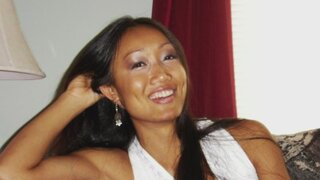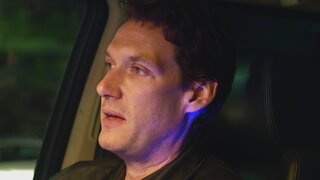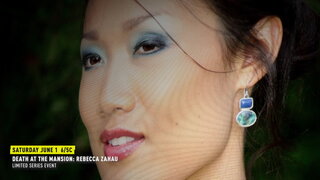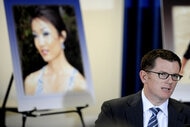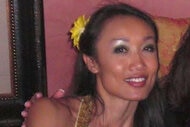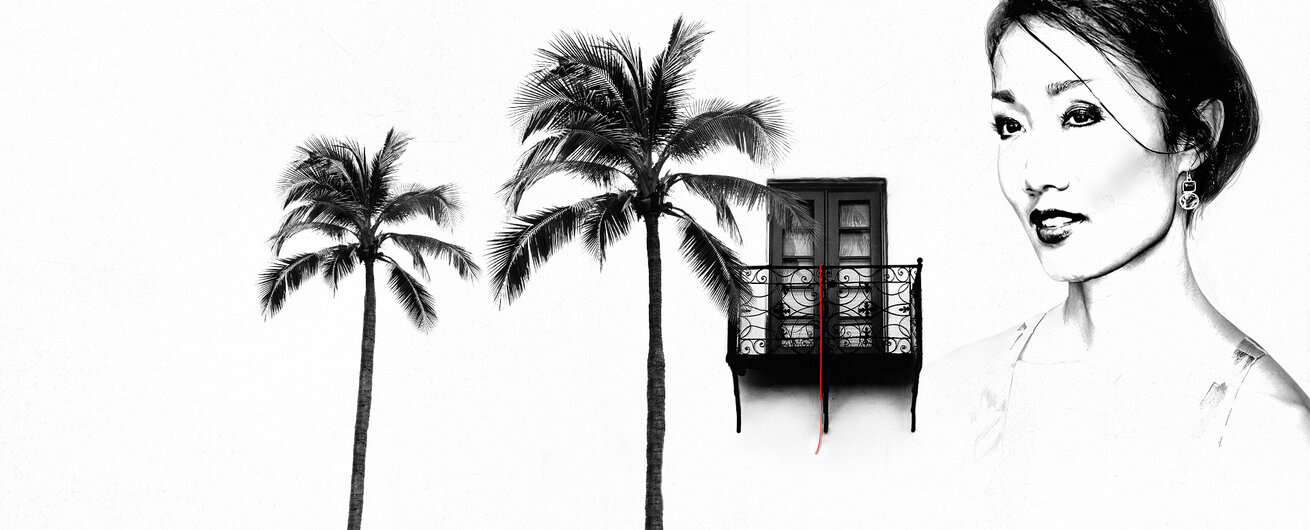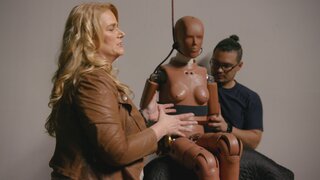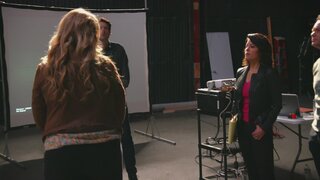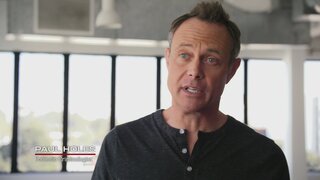Create a free profile to get unlimited access to exclusive videos, breaking news, sweepstakes, and more!
Authorities Said Rebecca Zahau Was Suicidal. But Were Her Words Twisted?
The San Diego Sheriff’s Department asserts Rebecca Zahau’s last messages indicate she was suicidal.
The San Diego County Sheriff’s Department has long contended that 32-year-old Rebecca Zahau took her own life in July 2011 — hanging herself, naked, from the second-story balcony of the Coronado mansion where she lived with her multi-millionaire boyfriend, Jonah Shacknai.
Investigators pointed to notes found on Zahau’s cell phone that painted a picture of an unhappy woman, growing increasingly dissatisfied with her life in the months leading up to her death.
Zahau allegedly wrote notes including, “If I am not thinking I am crying,” and, “No amount of money is worth what I am going through,” that were stored on her phone. Investigators believe the notes may have indicated suicidal thoughts.
However, Zahau’s family adamantly denies that claim; Zahau’s strong Christian faith would have kept her from taking her own life, they argue. The Zahaus also refute investigators’ claims that Zahau was depressed the final weeks she was alive, and say that she had been busy making plans for the future on the night her life abruptly ended.
The family believes that Adam Shacknai, Jonah Shacknai’s brother, was responsible for Zahau’s death — and, a jury found in a 2018 civil trial that Adam Shacknai was liable for Zahau’s death, although it was a 9-3 decision, according to NBC San Diego.
Adam Shacknai has maintained his innocence, however, and appealed the verdict. In February, Shacknai’s insurance company reached a $600,000 settlement with the Zahau family.
Was Zahau depressed and suicidal, as the sheriff’s office described, or were her words twisted by investigators to make it appear that way, as her family believes?
Investigators’ Theory
The sheriff’s office has concluded twice — first in an initial investigation and later in a re-evaluation of the evidence after the verdict in Adam Shacknai’s civil trial — that Zahau died by her own hand.
“After conducting a thorough review of the case, this review team found no evidence that would dispute or be inconsistent with the medical examiner’s findings that Rebecca Zahau’s manner of death was a suicide,” Lieutenant Rich Williams, with the sheriff’s homicide unit, said in a news conference in December 2018. “We found no evidence that would lead us to believe that Rebecca died at the hands of another. We also found no new or existing evidence that linked anyone to a potential criminal violation in this case.”
Williams said that, while he understood why the family was struggling to accept the department’s finding, the conclusion was backed up by the evidence found at the scene.
“Any family dealing with such a tragedy would have trouble understanding how a loved one could take their own life,” he said. “While we may never know what Rebecca was feeling, these notes from her phone provide some insight into her state of mind.”
In one such note, which was not timestamped, Zahau allegedly wrote, “m I just too much of a coward to face the truth that I m settling for the hope of a few happy years???Which may never even come??? Am I pretending that I will be content without ever having a child???”
Zahau also described a feeling of isolation, presumably after she left her job in Arizona as an eye technician to help care for Jonah Shacknai’s children.
“it is my own fault…I have allowed myself to be completely cut off from my own life…my life does not exist…,” one note said, according to a San Diego Sheriff’s Department Power Point presentation.
Another message shared by deputies read, “being talked to like I m a worthless person by kids who are spoilt.”
The final straw for Zahau, authorities believe, may have been when Jonah Shacknai’s six-year-old son Max was gravely injured by plunging over a second-story banister at the mansion while in Zahau’s care, just days before she was discovered dead.
Investigators have suggested that Zahau may have taken her own life after being wracked with guilt about the accident, according to a 2013 report from San Diego station KNSD.
Max Shacknai ultimately succumbed to his injuries just a few days after Zahau’s death.
Family Members Disagree With Investigators’ Conclusions
But those closest to Rebecca Zahau have publicly refuted investigators’ account of her mental state.
Zahau’s younger sister, Snowem Horwath, told reporters at KNSD in 2013 that her sister didn’t believe the Shacknais blamed her for the accident.
“She was sad, of course, because she loved the boy,” Horwath said. “She loved Max, but she never, ever said anything, or felt responsible for his fall.”
In videotaped testimony in the civil trial, Max’s mother, Dina Shacknai, said the family initially believed that Zahau had saved Max’s life by giving him CPR shortly after the fall.
Dina claimed to have told her ex-husband, Jonah Shacknai, “You should get down on your knees and thank (Zahau) for saving Max’s life. I said, ‘Of course I am grateful to her, because she gave him CPR,’” according to The San Diego Union-Tribune.
The Zahau family also points to the last text message they say Zahau ever sent, which read, “I have to be strong for Jonah” — not the words of a woman about to take her own life, they contend.
Rebecca Zahau’s older sister, Mary Zahau-Loehner, told Oxygen during the taping of the upcoming Oxygen docu-series “Death at the Mansion: Rebecca Zahau,” which begins airing June 1 6/5c, that in the months leading up to her death, her sister may have been considering leaving the relationship, but wasn’t planning to commit suicide.
Her family has pointed to stress and tension between Zahau and Jonah Shacknai’s two older children from his first marriage.
“Rebecca stepped in as a fairly young woman and took on the responsibilities of being a stepmom for these three young kids, and that's a difficult situation,” said Loni Coombs, a former district attorney who is re-examining the case as part of the new Oxygen. “You had a 13-year-old teenage daughter who was not happy with that — And Rebecca was having to constantly deal with that.”
According to Zahau-Loehner, Rebecca Zahau also regularly faced criticism from Jonah Shacknai’s two ex-wives as they all struggled to adjust to the family situation.
Zahau-Loehner described her sister’s role in her relationship with Jonah Shacknai as more of a “glorified nanny” than a girlfriend living a lavish lifestyle. Zahau spent most of her days shuttling the children to and from events, running errands or cleaning the house, Zahau-Loehner said.
In May 2011, just a few months before her sister died, Zahau-Loehner said that her family went to visit Zahau, and spent most of their visit cleaning up the mansion, including a moldy shower.
“Obviously, we had to do it,” Zahau-Loehner told Oxygen. “But I said, ‘This whole picture is wrong completely,’” adding that, while most of her sister’s friends thought she was living a pampered lifestyle, the reality was much different.
Zahau-Loehner remembers questioning her sister about the relationship, and why she let it continue.
“And I think that's when she kind of broke down a little bit more about the difficulty with the teenagers, and how she's getting frustrated and she doesn't think that she can do this much longer,” she said, adding that her sister planned to give the relationship until the end of the summer before re-evaluating it.
However, while there may have been strain in the relationship, Zahau-Loehner doesn’t believe her sister would have taken her own life.
Zahau’s Mental State In Her Final Days
Shortly after Max Shacknai’s accident, Rebecca Zahau was busy taking care of the household and shuttling people back and forth from the airport, according to her sister.
“I think she was more busy trying to take care of everybody else,” Zahau-Loehner said. “She’s still worried about Maxie, but nothing that indicated that she was gonna be impulsive; nothing that indicated that she was overly distraught, you know, and not more than anybody would be upset about that scenario.”
The sisters also spoke to each other the last night Rebecca was alive, in a nearly 40-minute phone call, giving Zahau-Loehner some insight into her sister’s state of mind in the hours before she would be found dead.
The two discussed the possibility of Zahau coming back home for a visit, but Zahau was hesitant to leave, because she wanted to be able to help Jonah deal with the aftermath of his son’s accident. Doctors were still performing tests on 6-year-old Max, Zahau-Loehner said, and her sister was still hoping for a recovery.
Zahau-Loehner said Rebecca did tell her that she’d definitely be back to celebrate and help plan her father’s 80th birthday party in October.
“So, she clearly had more things going on in her mind, in her plans with Mary, with her family, and even as far as Max was concerned,” Coombs said. “That evening, before her death, she told Mary that they were going to be doing the scan the next day; that she would let Mary know [what] the results of that test were. She was still hopeful that they would be getting something positive out of that test the next day.”
Zahau-Loehner said that her sister had told her she planned to take a shower and go to bed, so that she would be able to be up early the next day to go to the hospital.
But by the next morning, Zahau would be dead.
Her body was discovered naked, with her hands and feet bound and a T-shirt stuffed in her mouth like a gag, hanging from the second-floor balcony.
Adam Shacknai told police that, after he discovered the body, he called 911, then cut his brother’s girlfriend down and began to perform CPR — but some have questioned his account.
Strong Religious Background
Zahau’s family and attorneys have questioned much of the physical evidence at the scene that led police to conclude her death was a suicide. They also believe that Zahau would not have killed herself, because of her religious background and strong family ties — particularly in such a public and exposed fashion.
“When you read her writings and things like that, you can tell that she always goes back to God, and she always goes back to her faith and she always goes back to her belief,” Zahau-Loehner told Oxygen.
Although Zahau-Loehner doesn’t believe her sister was regularly attending church at the time of her death, she said her sister had talked about wanting to find a new church in California. Rebecca attended Bible college as a teen, and grew up in a religious home, making her faith an important aspect of her identity.
“Combine with that the closeness that she had with her parents, and how that would have devastated her parents, so, she never would have done that to her parents. It would have brought dishonor to them,” Coombs said of finding Zahau naked while on her period.
Coombs has also voiced doubts that the death was a suicide, and said that it was extremely rare for women to commit suicide naked in such a public manner.
“I feel like I understand her mindset, and the last thing she would've done in that circumstance is kill herself naked,” Coombs said. “I don't believe it. And I think the right thing needs to be done.”
The Zahau family believes investigators may have tried to gather evidence to fit their theory, rather than fully examine all the possible reasons for Rebecca’s death.
According to Zahau-Loehner, investigators questioned the family “like we were the criminals” after they arrived in California, and were only trying “to get us to say something that would support their theory of suicide.”
The sheriff’s office, however, has maintained that it conducted an objective investigation and considered all possibilities before reaching their conclusion.
The case will get a new look in the upcoming Oxygen series, as a group of trained investigators re-examine critical clues in Zahau’s mysterious death.
“There are so many questions that I want to dig into, and part of that is by talking to people,” Coombs said. “Part of that is doing your own active investigation, testing the evidence, understanding the evidence. Put it all together to figure out what really happened.”

